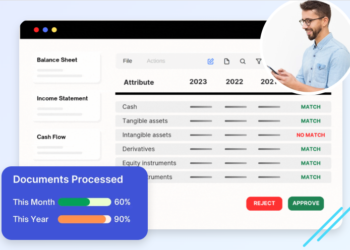An S Corporation, or S Corp, is a business structure that offers liability protection to its owners while allowing profits and losses to pass through to shareholders for tax purposes. This tax status provides advantages for small and medium-sized businesses, but it also comes with specific filing obligations. Understanding whether an S Corp must file a separate tax return is essential for compliance and tax efficiency.
Tax Filing Requirements for an S Corporation
Unlike sole proprietorships or single-member LLCs that report business income on the owner’s personal tax return, an S Corporation must file a separate return. The IRS requires all S Corps to submit Form 1120-S, which details the company’s income, deductions, credits, and other financial information. However, the entity itself does not pay federal income tax. Instead, its profits and losses are passed through to shareholders, who report them on their individual tax returns.
Form 1120-S and Schedule K-1
When an S Corporation files Form 1120-S, it must also prepare Schedule K-1 for each shareholder. This document outlines the shareholder’s share of income, deductions, and credits, which must be reported on their personal tax return (Form 1040). Even if an S Corporation has no income for the year, it is still required to file Form 1120-S to maintain compliance with the IRS.
Does Every S Corporation Need to File?
Yes, all S Corporations must file a separate tax return. The obligation to submit Form 1120-S applies regardless of whether the business made a profit, incurred losses, or remained inactive. Failure to file on time may result in penalties, which are typically based on the number of shareholders in the company. The IRS imposes fines per month for each shareholder if the return is late.
Tax Benefits and Savings
S Corporations can offer significant tax savings, particularly when it comes to self-employment taxes. Unlike sole proprietors or partnerships, S Corp owners can divide their earnings between salary and distributions. Only the salary portion is subject to payroll taxes, while distributions are not. Business owners often use tools like an S Corp tax savings calculator to estimate potential savings by structuring compensation efficiently.
State-Level Filing Requirements
While federal tax filing requirements are uniform for S Corporations, state-level obligations vary. Some states recognize S Corp status and impose minimal taxes, while others levy franchise or excise taxes. In certain cases, states may require S Corps to file additional reports or pay fees. Checking state-specific rules ensures compliance and avoids unexpected liabilities.
Key Deadlines for S Corp Tax Filing
S Corporations must file Form 1120-S by the 15th day of the third month following the end of the tax year. For businesses following the calendar year, the deadline is typically March 15. If more time is needed, S Corps can request an automatic six-month extension using Form 7004. However, this extension only applies to filing the return, not to tax payments owed by shareholders.
Consequences of Failing to File
Not filing Form 1120-S on time can result in penalties from the IRS. The penalty is calculated per shareholder for each month the return is late, up to a maximum duration. Additionally, failing to issue Schedule K-1 forms to shareholders can lead to further fines. Keeping accurate records and meeting filing deadlines is crucial to avoiding unnecessary penalties.
Considerations for Small Business Owners
Business owners who elect S Corp status should maintain accurate financial records, track shareholder distributions, and ensure proper payroll reporting. Since the IRS scrutinizes reasonable compensation for S Corp owners, it is advisable to set a fair salary in line with industry standards. Using an S Corp tax savings calculator can help estimate tax obligations and optimize salary structures to maximize benefits.
Conclusion
An S Corporation must file a separate tax return, but it does not pay corporate income tax at the federal level. Instead, shareholders report their share of profits and losses on their personal tax returns. Filing Form 1120-S and distributing Schedule K-1s are essential responsibilities that ensure compliance with IRS regulations. By understanding tax obligations and utilizing financial tools, S Corp owners can effectively manage their tax liabilities and optimize savings.






